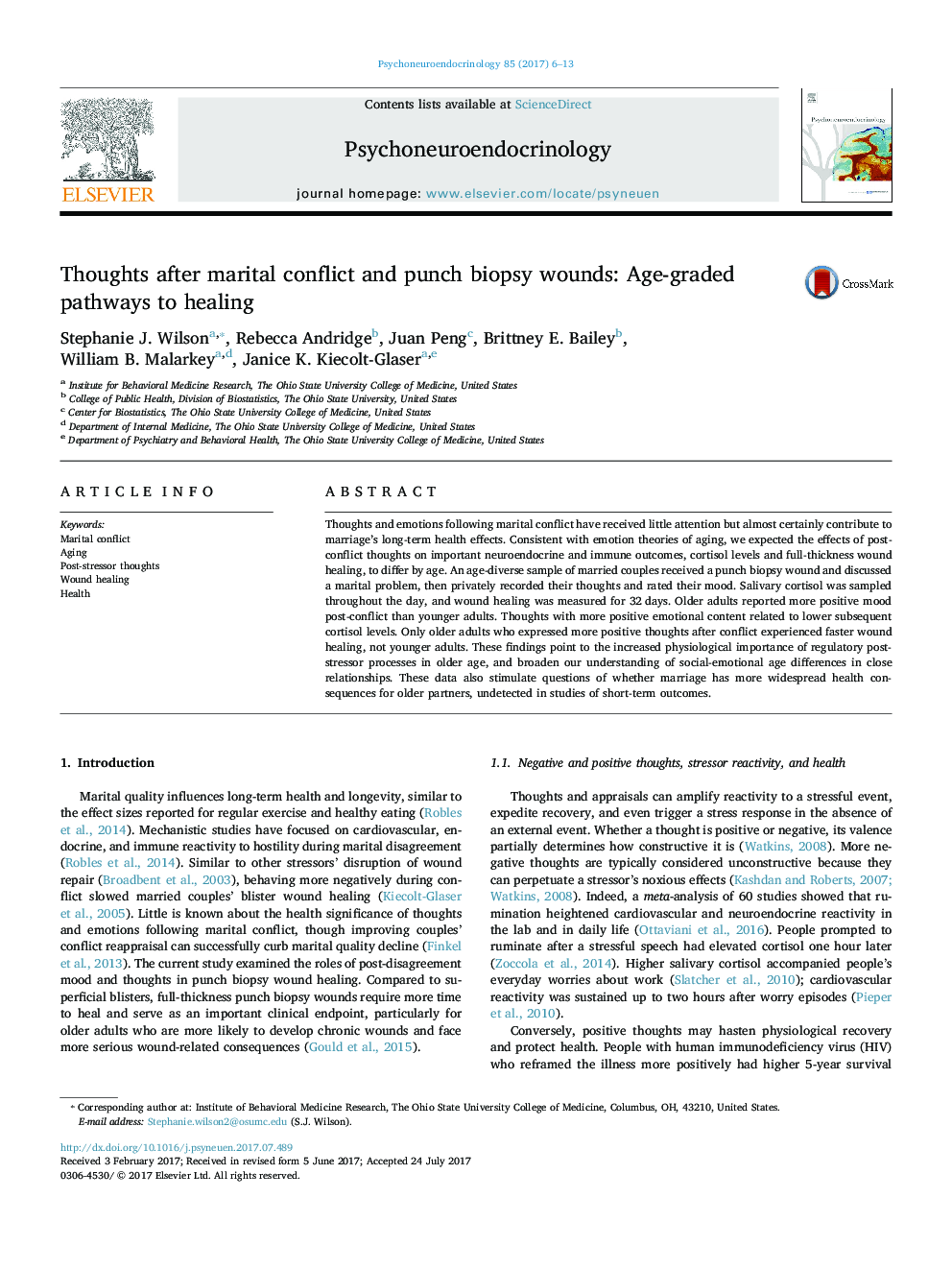| Article ID | Journal | Published Year | Pages | File Type |
|---|---|---|---|---|
| 4934183 | Psychoneuroendocrinology | 2017 | 8 Pages |
Abstract
Thoughts and emotions following marital conflict have received little attention but almost certainly contribute to marriage's long-term health effects. Consistent with emotion theories of aging, we expected the effects of post-conflict thoughts on important neuroendocrine and immune outcomes, cortisol levels and full-thickness wound healing, to differ by age. An age-diverse sample of married couples received a punch biopsy wound and discussed a marital problem, then privately recorded their thoughts and rated their mood. Salivary cortisol was sampled throughout the day, and wound healing was measured for 32Â days. Older adults reported more positive mood post-conflict than younger adults. Thoughts with more positive emotional content related to lower subsequent cortisol levels. Only older adults who expressed more positive thoughts after conflict experienced faster wound healing, not younger adults. These findings point to the increased physiological importance of regulatory post-stressor processes in older age, and broaden our understanding of social-emotional age differences in close relationships. These data also stimulate questions of whether marriage has more widespread health consequences for older partners, undetected in studies of short-term outcomes.
Related Topics
Life Sciences
Biochemistry, Genetics and Molecular Biology
Endocrinology
Authors
Stephanie J. Wilson, Rebecca Andridge, Juan Peng, Brittney E. Bailey, William B. Malarkey, Janice K. Kiecolt-Glaser,
